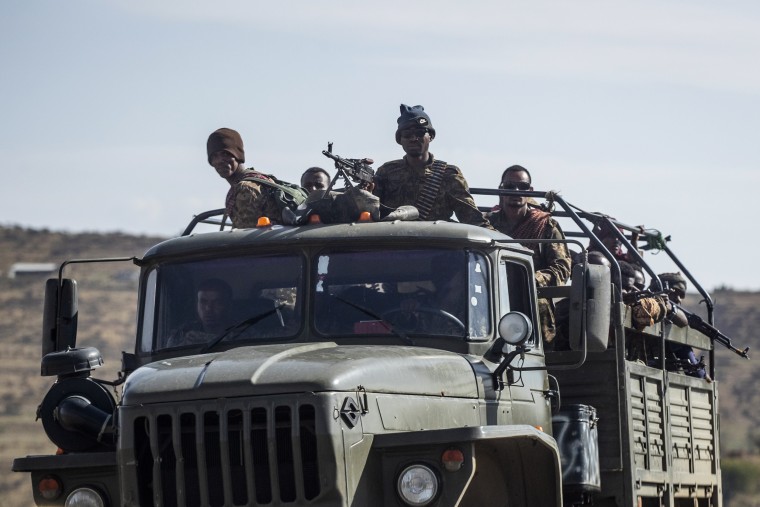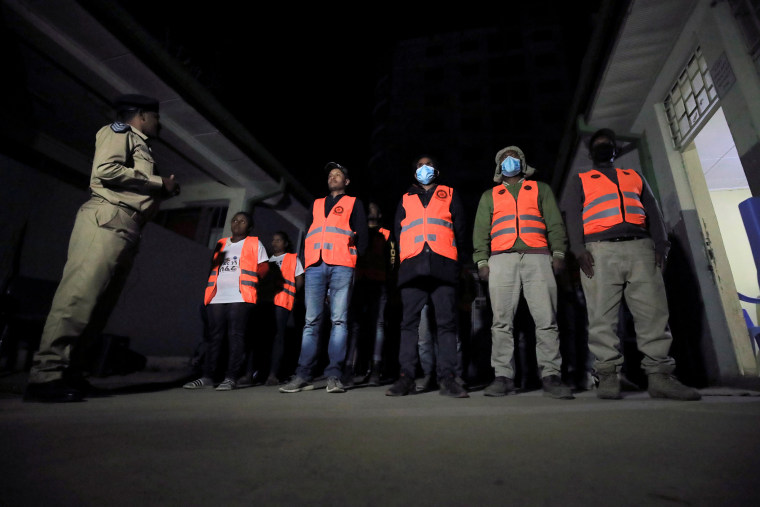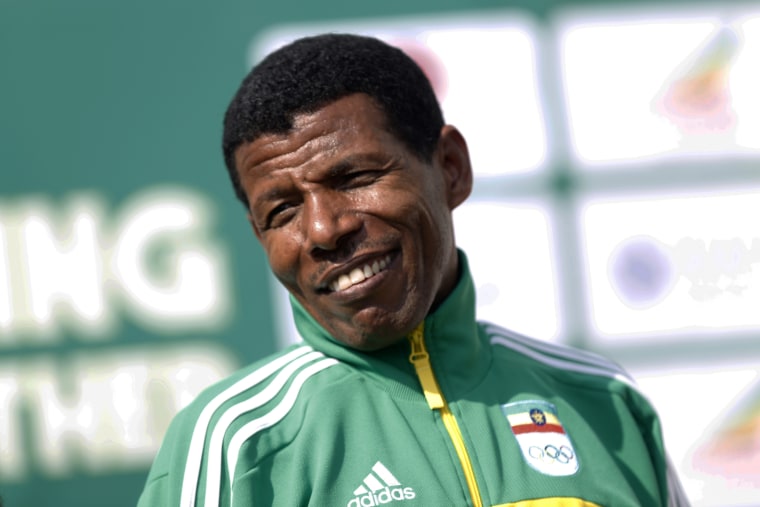Ethiopia’s Prime Minister Abiy Ahmed has gone to direct the war from the frontlines, state-affiliated media reported on Wednesday, as two Olympian athletes announced they were enlisting in the military.
Gold medallist Haile Gebreselassie, who set 27 long distance running records, told Reuters he was joining. So is Olympic silver medallist runner Feyisa Lelisa, local media reported.
While Abiy is away, Deputy Prime Minister Demeke Mekonnen Hassen would take charge of routine government business in his absence, government spokesman Legesse Tulu told a news conference, according to a report from Fana news outlet.

Abiy announced late on Monday he was planning to personally direct the fight against Tigrayan forces and their allies.
“Let’s meet at the war front,” he wrote “The time has come to lead the country with sacrifice.”
Download the NBC News app for breaking news and politics
Last month, Tigrayan forces and their allies threatened to march on the capital Addis Ababa. They have also been fighting fiercely to try to cut a transport corridor linking landlocked Ethiopia with the region’s main port Djibouti.

On Tuesday, U.S. Special Envoy Jeffrey Feltman said the Ethiopian military and regional militias had been able to hold back Tigrayan attempts to cut the corridor, but Tigrayan forces had been able to move south towards the capital.
Ethiopia’s military spokesperson did not respond to requests for comment.
Ethiopian police have trained around 147,000 civilians in the capital to form neighborhood defense groups and help detect possible infiltrators, police told Reuters.
Diplomats expelled
Feltman, along with former Nigerian president turned African Union envoy Olusegun Obasanjo, has been trying to broker a ceasefire between the two sides.
On Tuesday, Feltman said that nascent progress risked being overshadowed by military developments.
On Wednesday, Ethiopia expelled four of six Irish diplomats from the country because of Ireland’s stance on the conflict, Irish Foreign Minister Simon Coveney said.

Ireland has been at the forefront of calling for meetings of the U.N. Security Council on Ethiopia and pushing for council statements on the conflict since it joined the 15-member body in January.
“Ireland has been shining a spotlight on things that have been happening in Ethiopia that really are breaches of international law and are of serious humanitarian and human rights concern,” he told Ireland’s RTE radio.
“We’ve already had unfortunately a lot of death and a lot of killing in Ethiopia this year, but it could get an awful lot worse in the next few weeks ...and that is why, unfortunately, the Ethiopian government has decided to target Ireland.”
Dina Mufti, spokesperson for the Ethiopian Ministry of Foreign Affairs, did not immediately respond to a request for comment.
The Irish foreign ministry said its embassy would remain open, but that it had asked its citizens to leave by commercial means immediately, and said those planning to visit should avoid travel.
Also on Wednesday, Switzerland and Britain advised their citizens to leave Ethiopia, citing the worsening security situation. France and the United States have already called on citizens to leave.